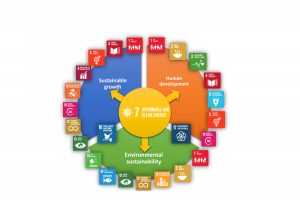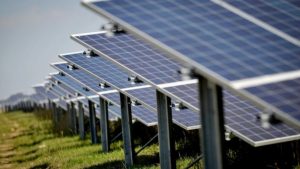By all standards Nigeria is not efficient with the trifling energy volumes she produces. She’s as wasteful in production, as she’s in usage. Views from OGN’s in-house research team sum this up.
Energy efficiency is described a systematic approach to power generation, provision and utilization that ensures optimal usage of all energy thereby reducing the overall amount of power needed to complete specific tasks.
This however should not be confused with energy conservation, which is a totally different practice. Switching off a fridge when it is not in use is energy conservation, while changing out an older energy sapping air conditioner with modern brand that uses less power is energy efficiency. That’s as simple both terms can be described.
By all accounts energy efficiency is a well thought out and intricate process that involves transportation, architecture and industrial actions which most countries have adopted as not just a matter of principle but a necessary tool for evolving their societies.
Leading countries like Japan, Sweden and Norway imbibe the culture of energy saving, recycling and efficiency in not just their government but all the way to their citizenry as well. Other than the social benefits however, the greatest incentive for energy efficiency is the economic payback accruable from it: when a country stops having to spend heavily on utilities then more money for investment, leisure and healthcare become available thus making the society prosper.
It is with this tenet in mind that OGN’s in-house research team looked into the works of an alliance comprising of the German government, the United States Agency for International Development (USAID) and the European Union (EU), which sought to promote the Building Energy Efficiency Guidelines (BEEG) in local architectural practices within Nigeria.
The BEEG is a strand of energy efficiency designed to help lessen the burden on an electrical grid by having the building capable of performing some task that would otherwise fall to the grid to provide energy for. Alongside the BEEG in buildings, the International Energy Agency (IEA) has identified several other sectors in industry, services and transport as areas where energy efficiency can be most effectively applied.
From records, the Nigerian government is not quite ignorant of the important role that energy efficiency plays in today’s world. The government had in fact passed a National Renewable Energy and Energy Efficiency policy in 2015, which though well intended, falls woefully short of achieving its intended outcome without a definite and workable action plan to follow through.
These inconsistencies thus led the World Bank to in its recently released report on energy indicators, flay the country on its poor to non-existent performance in energy efficiency.
Similarly, in his assessment of Nigeria’s poor management of its available energy, CEO of Blue Carmel Energy, a Nigerian renewable energy firm, Suleiman Yusuf, stated that up to 20% of grid electricity supplied to homes and hotels in the country are lost to water heating which could be done with simple solar heating systems.
Yusuf explained that just 2 hours of daily sunlight would be enough to provide Nigerian homes with enough hot water to use for the next 24 hours. “Unfortunately, because there is no sufficient information, there is no persuasion, there is no legislation around it, and people don’t just wake up and start providing piping for it,” he lamented.
In a nutshell the overarching picture is quite a conundrum in Nigeria which is perhaps spoilt for choice on energy sources.
Overwhelmingly, there is an agreement that energy efficiency is good for all and should be wholesomely adopted to grow Nigeria’s economy and society, especially with the kind of support offered by many international bodies and friendly governments on this.
Additionally, Nigeria has the pressing incentive of desperately needing the outcome of energy efficiency (more money, more electricity), as well as an ironical luck of still developing her basic infrastructure – housing units, office complexes, transport system, and other public utilities, so all that she builds henceforth can be the most advanced and energy saving (which is considerably cheaper than having to upgrade old infrastructure), infrastructure.
While abhorring the fact that Nigeria still does not seem to have a concrete plan on how to proceed with an energy plan that consciously seeks to turn the ratings of internationally recognized energy indicators to her favour, it is also necessary to point out that the seeming lack of urgency within the government to promote the BEEG either would have to change for a meaningful progress to be made on this.
Save for the few members of the Nigerian Institute of Architects (NIA) who have shown immense commitment to applying the BEEG in their designs and professional practices, little effort is seen being made to transmit and embed this practice in tertiary schools where the bulk of future architects will be groomed.
There is also no coordinating government agency to help drive the government’s efficiency plan down to relevant stakeholders, making this quite a sad way to push for improved management of energy in a country with very little to share.
In recap, if the efforts of Nigeria’s government is more on bridging the current infrastructural gap in the country’s energy sector, without the right policy drive to guide citizens’ usage of what would be produced afterwards, it will as well become some sort of a ‘labour in vain’. It is hoped this will not come up.





